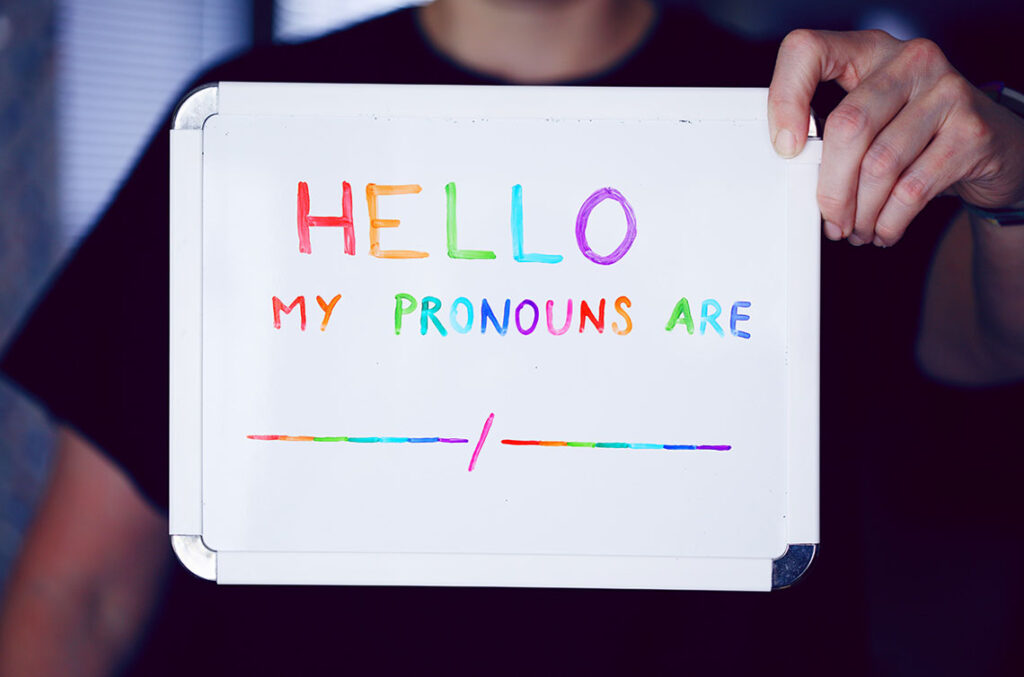
The gender binary is how people are classed as male or female.
In Ireland, a lot of people were raised to recognise that there are two genders, female and male, and that sex and gender are the same thing. This is what is meant by the ‘gender binary’.
However, neither sex nor gender are inherently binary.
In terms of gender, when someone does not identify or feel that male or female best describes them, non-binary is a word that helps give voice to a diverse range of gender identities.
Understanding Non-Binary People
Some people feel they do not fit into the categories of male and female. For example, some feel their identity incorporates elements of both being a man or woman or that their identity is neither male or female and some peoples gender changes over time.
Non-binary is the most common term used to describe these varied identities. Other terms include genderqueer, agender and bigender.
Non-binary is a general or umbrella term, used to describe those who identify in many ways outside the gender binary. For some people who identify as non-binary, their gender is not fixed and/or they experience a variety of male and female identities. For others, they do not identify as either gender.
Some facts about Non-Binary People
History – Around the world and for millions of years, cultures and societies have recognised non-binary identities in different ways.
Medical Procedures – Some non-binary people have medical procedures to help their bodies align with their identity, this medical treatment is critical and even life-saving for many. However not all non-binary people feel that they need to undergo medical procedures.
Non-binary and Intersex – While non-binary people are usually born with bodies that typically fit definitions of male or female, their gender identity is something other than male or female. Intersex people have bodies that don’t fit the male and female definitions, but they usually identify as male or female.
How to be Respectful and Supportive of Non-Binary People
- It is understandable to be concerned about supporting a non-binary person when you are at first learning about them. However, you do not need to understand what it means for someone to be non-binary, you just have to respect them.
- Always use the name and pro-nouns that the person asks you too. A non-binary person may choose to change their name, as their previous name may not reflect their gender identity.
- Don’t ask someone what their old name was and if you are not sure what pronouns to use, just ask.
- Everyone has pro-nouns that are used when referring to them. Getting them right is not just a non-binary issue, however, it is also a way in which we can help non-binary people feel seen, heard and affirmed in their gender identity.
- You cannot tell by looking at someone if they are non-binary, so it is best not to make assumptions.
- It is important that non-binary people get to live, dress and have their gender respected at school and in public spaces.
- Just like there is no one way to be male or female, there is also no one way to be non-binary. Talk to a non-binary person to learn more about them and listen to their stories.
